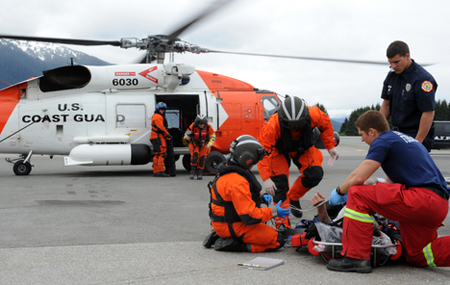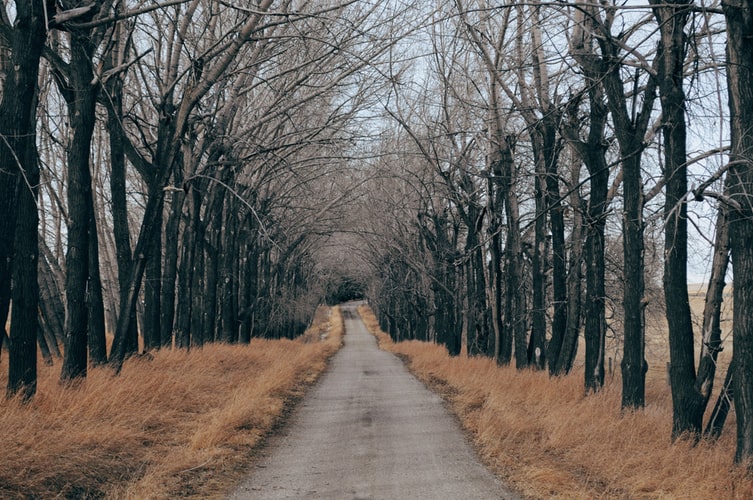Note before we start: you may feel that the issues that we’re going to discuss in this article make you uncomfortable, or that you’d rather not think of them.
I have found in my life that means you MUST take on that issue. To avoid the topics you dislike doesn’t make them go away, it means that they can end up biting you in the ass when you least expect/desire.
At Adventure Copilot we traffic only in truth. We believe it’s far better to hear 10 uncomfortable truths than one comforting lie.

1. You may die.
Reminding yourself of your own mortality has always been popular — dating at least as far back as the Stoics. This technique can pay dividends. It may not be popular to point this out, but you will most certainly will die at some point in your life. For your sake and for mine (you can’t hire us if you’re dead), I sincerely hope that it won’t be on the adventure you’re planning.
On my own motorcycle adventure trip to South America, I made a point of reminding myself that each ride could be my last. Perhaps this seems a bit morbid, but I’m convinced it’s one of the reasons I returned from South America alive. Moreover, I’ve continued to maintain my astonishing record of zero broken bones and zero admissions to a hospital. Understanding that our actions and choices have lasting consequences is essential in taking on any new challenge.
Beyond reminding myself I could die, I came up with a rather dark game: “every vehicle is going to try to kill me at every moment.” I played like this: come up with the worst possible thing that each vehicle could do at a given instant and then come up with a plan for how I would handle it. That semi? It’s about to veer into my lane without any warning. Going around a curve? I’m guaranteed to find a car swerving into my lane. More than a few times, my predictions were completely accurate. Coming up with the worst case scenario for your adventure and mentally rehearsing how to handle it could be a great technique for you too. At the very least, it alleviates boredom.
Even though it’s not fun, it’s important to plan for the worst case. This means getting your personal will finished, witnessed, and sent to a family member/friend that you trust. It probably also means that you’ll want to set up beneficiaries on your financial/retirement accounts to make handoff easier. This process will help you take your pursuit even more seriously — which might be the margin you need to return home safely.

2. You may get hurt.
Far more likely than you perishing, is getting hurt. To mitigate this issue, investigate how the locations you’ll find yourself in are treated by your health insurance company. If you’re traveling internationally, chances are your insurance won’t be covering you, so you may need to purchase some supplemental coverage.
This all being said, in some locations, medical care can be free or low-cost. The problem with free and low-cost care though is it doesn’t tend to be high quality. For minor issues this is fine, but having coverage so that you can be seen at a private hospital or medical clinic will reduce wait times and frustration especially when you’re not feeling your best.
Finally, consider where you get hurt. If it’s in a remote area and you’re either by yourself or with a friend consider how you’d handle an injury when cell phone service is non existent. A personal locator beacon works through satellites anywhere you go in the world and can be the difference between life and death. There are sevices like Garmin InReach or SPOT messenger, but I prefer an old fashioned personal locator beacon (PLB). This is a device that requires no subscription fees outside a replacement battery every five years.

3. You may need to leave the country
Assuming you’re outside of your home country, and that you get hurt, you may indeed require emergency evacuation to receive a better quality of care than you can receive in your current location. This is where things get pricey. You thought that an international flight was expensive? Get ready to experience the worst sticker shock of your life. Medical evacuation flights whether they be via helicopter, jet, turoprop, etc can be some of the most expensive trips you’ll ever take — to the tune of hundreds of thousands of dollars.
You may find that a personal locator beacon or SPOT device can help you find affordable insurance coverage. Trust me I know you don’t want to pay the premiums of another service that you feel you’ll never use, but you’ll want it if you end up needing it. Some providers also make arrangements for returning your gear/equipment back to your home country which can also be helpful. Find these things out BEFORE you go.

4. You may run out of money
Listen, I know that budgets aren’t very fun for anyone, but they do serve a very useful purpose. Knowing how much money your adventure will cost will help you budget BEFORE you go. Don’t be the type of person that jumps into something new in a dangerous new place with half the funds needed and then says, “oh well I’ll figure it out.” Figure it out before you go. And allow some buffer room for yourself. Trust me when I say you don’t want to be mopping floors at a hostel because you didn’t budget properly.
When you’re abroad, you’ll likely also find it useful to use a budgeting app that is capable of converting foreign currency to your home currency. It can be confusing to see prices that you’re not used to seeing. I also recommend talking to locals and finding out the local prices, and the right places to buy things.
A different problem is running out of local currency even though you might have plenty of money available for your trip. I’d recommend using the Charles Schwab investor checking account. Yes you’ll also have to sign up for a brokerage account, and yes, the paperwork can get a little annoying, but you’ll love having 100% of your ATM fees reimbursed to you at the end of the month. This approach also lets you take out money a little at a time so you don’t walk around with too much cash (see my next point).

5. You may get robbed
Getting robbed sucks. I’ve had it happen to me once in Chile. Luckily enough for me, it was a pickpocket and not a full out battery and robbery.
The best way to mitigate a robbery is to blend into the populace and leave all your fancy jewelry, watches, cell phones at home or in your hotel. I knew a young woman who had family heirloom gold chain stolen off her neck in Rio de Janeiro. You can also avoid a lot of these situations by talking to locals and finding out which areas to avoid at what times of day/night.
What I liked to do was bring a beater cell phone for $30 when I knew I’d be going out. A fake decoy wallet that you offer up when someone wants to rob you can help you. I filled it with expired credit cards and about $5 in local currency. When someone tries to rob you I recommend that you just give them what they want. If they’re willing to go to the trouble and danger of robbing you, chances are they value your possessions higher than they do your life. One time in Buenos Aires, a tweaked out man shoved his finger into his front pocket and motioned that he wanted my money. I flicked opened my police baton but luckily the woman I was walking with yelled at me and said, “he’s not worth it!” She was right, he wasn’t.
Distributing your money across different locations in your possessions can also be helpful. I had different packages of credit cards and cash stashed in three or four locations so even if I was robbed of my motorcycle and all its contents, I’d still have some way to get somewhere safe.
I’ll close with a great technique that I learned from a friend in Corrientes Argentina but it only works if you’re a man. What you do if you happen to be walking home by yourself is take off your shirt and start to walk with a certain swagger. This may seem strange but to would be thieves, you look like:
- You’ve already been robbed (and they took your shirt too)
- You might be on drugs
- You might be out to rob someone
I used this technique with great success in Rio de Janiero. I wasn’t robbed despite walking home at night at 2, 3, and 4am. Also when you see a couple guys approaching you on the opposite side of the street crossing the street is a good idea.
Note: Dear Reader: I take no responsibility for your personal safety, but I do hope that you’re always safe.
If you would like to talk one on one with one of our adventure experts regarding an upcoming adventure or trip of yours please reach out to us us, or feel free to contact us with questions about our service or how we can help you.

 We have quite a few adventure secrets we’ve learned over the years.
We have quite a few adventure secrets we’ve learned over the years.